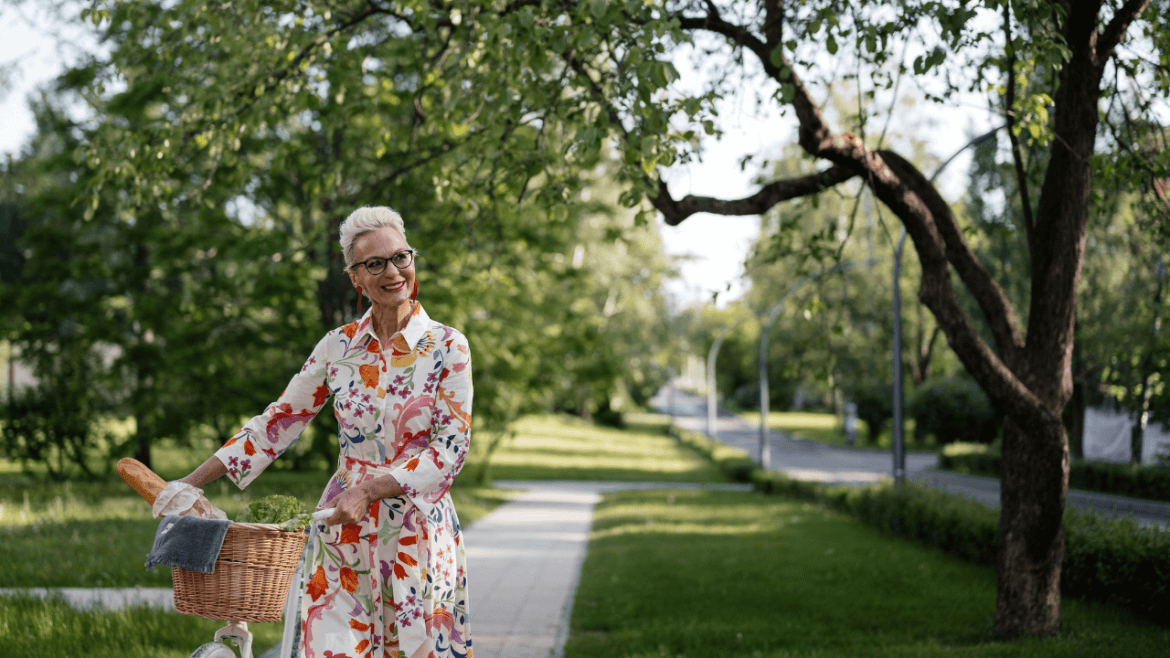Best Ways To Keep Seniors Healthy & Active
Did you know that Leading Edge Senior Care has a Dementia Support Group? We meet monthly in Mesa. For more details <click here>
Best Ways To Keep Seniors Healthy & Active
Maintaining health and activity as we age can feel challenging, but for seniors, it is particularly crucial. Regular exercise, a well-rounded diet, and social engagement significantly impact physical, mental, and emotional health.
The senior years bring unique needs and considerations, yet a proactive approach to health and wellness can help seniors lead vibrant, independent lives. With a few key lifestyle adjustments, seniors can foster physical strength, mental clarity, and emotional well-being.
Understanding the Importance of Physical Activity for Seniors
Regular physical activity provides many benefits, such as enhanced mobility, better balance, and reduced risk of chronic illnesses. Seniors who stay physically active tend to experience greater overall wellness, with fewer mobility limitations. Even light activities like walking or stretching can boost energy levels and improve mood. Exercise also supports joint flexibility, which becomes essential in maintaining independence as age advances.
Low-impact exercises, such as swimming, yoga, or tai chi, are especially beneficial for seniors. These activities reduce strain on the joints while promoting strength and stability. Walking, too, can be a powerful tool—easily accessible and modifiable to fit any fitness level. In addition, regular movement helps the body’s cardiovascular and respiratory systems function optimally, supporting healthy circulation and lung capacity.
Prioritizing Nutrition to Support Vitality and Wellness
Nutrition is essential in sustaining health, particularly for seniors whose dietary needs may shift with age. A balanced diet rich in vitamins, minerals, and fiber enhances immune function and sustains energy levels. Seniors should focus on whole foods such as fruits, vegetables, whole grains, and lean proteins. These foods offer essential nutrients that support bone health, mental clarity, and immune resilience.
Incorporating healthy fats from sources like avocados, nuts, and olive oil benefits cognitive health, while reducing processed foods limits inflammation—a common concern for aging bodies. Adequate hydration, often overlooked, plays a vital role in digestion, kidney function, and skin health. Seniors may not feel thirsty as often, so encouraging regular water intake is important for maintaining overall wellness.
Building Strong Social Connections for Mental Health
Social isolation poses a serious threat to senior health, increasing the risk of depression, cognitive decline, and other mental health concerns. Regular social interaction, however, fosters emotional well-being and even improves longevity. Whether through family visits, community events, or group activities, social connections give seniors a sense of purpose and belonging. Participating in hobbies or volunteering also nurtures emotional wellness, offering valuable interaction and reducing feelings of loneliness.
Seniors should have opportunities for social engagement to maintain and strengthen friendships or family relationships. Activities like game nights, group exercise classes, or joining clubs cater to different interests and ensure mental stimulation. Pets can be wonderful companions, too, reducing stress and providing a comforting presence that eases isolation.
Maintaining Cognitive Health with Mental Stimulation
Brain health is essential for seniors, as mental sharpness greatly influences quality of life. Cognitive exercises and activities can help maintain memory and problem-solving skills, even in later years. Seniors can engage in various mental activities, from puzzles and crosswords to learning new skills or taking educational classes. Reading, writing, or even exploring new hobbies stimulate the brain and create pathways that support cognitive resilience.
Technology offers an array of tools to enhance cognitive health, too. Apps designed to stimulate memory or improve focus keep the mind sharp, and many libraries offer free access to learning resources. Seniors may also benefit from learning to use social media or video calls, providing both mental engagement and an avenue for social interaction.
Incorporating Rest and Relaxation to Promote Healing
Restful sleep and relaxation are fundamental to maintaining health, yet many seniors struggle with consistent, restorative sleep. Sleep difficulties can arise due to health conditions, medications, or changes in circadian rhythms. Prioritizing good sleep hygiene can support a stronger immune system, improved mental health, and overall energy levels.
Creating a calming bedtime routine can help. Gentle evening stretches, reducing screen time, and ensuring a comfortable, quiet sleeping environment all promote relaxation. Techniques like deep breathing or meditation are beneficial, providing a sense of calm that eases the body into restful sleep. Rest isn’t just about sleep; relaxation during the day reduces stress, fostering a more balanced emotional state.
Preventative Health Care and Regular Check-ups
Preventative healthcare is key to identifying health concerns early on. Seniors should schedule regular visits with their primary healthcare provider and stay current with recommended screenings and vaccinations. By detecting potential health issues early, seniors can receive timely care that reduces complications. In addition to medical check-ups, dental, vision, and hearing appointments are essential for maintaining all-around wellness.
Beyond appointments, seniors can monitor their health at home by tracking changes in energy, mobility, and mental clarity. This proactive approach ensures that any emerging concerns are addressed quickly, reducing stress and promoting peace of mind.
Creating a Well-rounded Plan for Senior Wellness
Creating a supportive environment for senior wellness can be simple but transformative. Combining physical activity, nutrition, social connection, cognitive stimulation, rest, and preventative care allows seniors to experience a balanced, fulfilling life. Family members, caregivers, and communities play important roles in ensuring seniors receive the support they need.
Fostering independence while providing encouragement lets seniors take an active role in their well-being, giving them confidence and purpose. With comprehensive care, seniors not only improve physical health but also nurture emotional and mental resilience. When seniors feel empowered to maintain their health, they are more likely to embrace each day with enthusiasm and joy, leading to a higher quality of life.
Each choice, no matter how small, contributes to a fulfilling and healthy lifestyle for seniors.

